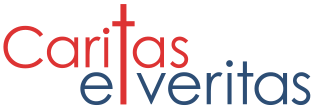Caritas et veritas 2020, 10(2):50-63 | DOI: 10.32725/cetv.2020.026
The Use of Philosophical Texts in Extracurricular Activities in the Context of the Personal and Social Development of Children of Younger School Age
- Univerzita Palackého v Olomouci, Cyrilometodějská teologická fakulta, Katedra křesťanské výchovy, Univerzitní 244/22, 779 00 Olomouc
The paper focuses on the issue of the cross-sectional topic Personal and Social Development in the After-school Activities of Children of Younger School Age when based on the concept of philosophy for children. In Slovakia, there are supporters of this concept who strive to implement it into the educational process. The presented text is a part of wider research, and it represents one of the results of the mentioned efforts.
The aim of the paper is to describe and analyse the course and results of qualitative research carried out during the after-school activity. We focused on the possibilities of using a philosophical text for children and subsequent discussion in the area of personal and social development.
The results of the research showed the suitability of implementing philosophy for children in conjunction with the cross-sectional theme in this type of non-formal education, as well as the relationship between the discussion based on the text and the cross-sectional theme. At the same time, some weaknesses and reservations of the use of philosophical texts for children were revealed.
Keywords: Personal and social development, philosophy for children, philosophical text, discussion, after-school activity
Published: September 30, 2020 Show citation
| ACS | AIP | APA | ASA | Harvard | Chicago | Chicago Notes | IEEE | ISO690 | MLA | NLM | Turabian | Vancouver |
References
- Erich MISTRÍK, Vstup do umenia, Nitra: Enigma, 1994.
- Matthew LIPMAN, On Writing a Philosophical Novel, in: Studies in Philosophy for Children. Harry Stottlemeier's Discovery, ed. Ann Margaret SHARP - Ronald F. REED, Philadelphia: Temple University Press, 1992.
- Matthew LIPMAN - Ann Margaret SHARP - Frederick S. OSCANYAN, Philosophy in the Classroom, Philadelphia: Temple University Press, 1980.
- © Sozan H. OMAR, Mastery Level of Critical Thinking Skills for Female Middle School Students in Saudi Arabia, Journal of Educational & Psychological Sciences 19/4, 2018, s. 230-258 (online), dostupné na: https://journal.uob.edu.bh/bitstream/handle/123456789/3441/8.pdf?sequence=1&isAllowed=y, citováno dne 15. 11. 2019.
- Mária LALINSKÁ - Eva STRANOVSKÁ - Zdenka GADUŠOVÁ, Instruments for Testing Reading Comprehension, IRCEELT 2019: Proceedings book from the 9th International Research Conference on Education, Language and Literature, ed. Natela DOGHONADZE, Tbilisi: International Black Sea University, 2019.
- Mária LALINSKÁ - Eva STRANOVSKÁ, Proposal for a Reference Framework and Tools for the Evaluation of Teachers' Professional Competences in Slovakia, International Journal of Economic Research 2/2018, s. 289-298.
- © Štátny vzdelávací program - primárne vzdelávanie (online), dostupné na: http://www.statpedu.sk/files/articles/dokumenty/inovovany-statny-vzdelavaci-program/svp_pv_2015.pdf, citováno dne 18. 3. 2019.
- Kateřina HOMOLOVÁ, Dospívající mládež a dvě hodnoty čtenářství, in: Mládež, hodnoty a volný čas, ed. Helena POSPÍŠILOVÁ, Olomouc: Hanex, 2010.
- Roman ŠVAŘÍČEK - Klára ŠEĎOVÁ a kol., Kvalitativní výzkum v pedagogických vědách, Praha: Portál, 2007.
- John W. CRESWELL, Qualitative Inquiry & Research Design. Choosing among Five Approaches, London: Sage, 2013.
- Jonathan A. SMITH - Paul FLOWERS - Michael LARKIN, Interpretative Fenomenological Analysis. Theory, Method and Research, London: Sage, 2013.
- © MiYoung LEE - Hyewon KIM - Minjeong, KIM, The effects of Socratic questioning on critical thinking in web-based collaborative learning (on-line), in: Education as Change, 2/2014, s. 285-302, dostupné na: https://www-tandfonline-com.proxy-ub.rug.nl/doi/full/10.1080/16823206.2013.849576,citováno dne 20. 1. 2020.
 Go to original source...
Go to original source... - © Josef PETRŽELKA, Sókratovská metoda na internetu, (on-line), in: Pro-Fil. an Internet Journal of Philosophy, 1/2000, dostupné na: https://www.phil.muni.cz/journals/index.php/profil/article/view/1509/1782, citováno dne 22. 6. 2020.
- Eva ZOLLER, Učíme děti ptát se a přemýšlet. Praha: Portál, 2012.
- Pierre LAURENDEAU, Blanka a Jirka, České Budějovice: TF JU, Centrum filozofie pro děti, 2011.
- Pierre LAURENDEAU, Lukáš a Lenka, České Budějovice: TF JU, Centrum filozofie pro děti, 2011.
- Matthew LIPMAN, Eliška, České Budějovice: TF JU, Centrum filozofie pro děti, 2012.
- Jackie FRENCHOVÁ, Hitlerova dcera, Praha: Mladá fronta, 2009.
- Arnold LOBEL, Kvak a Čľup sú kamaráti, Prešov: Slniečkovo, 2008.
- Matthias SODTKE, Gibt es eigentlich Brummer, die nach Möhren schmecken? Oldenburg: Lappan, 2011.
- Lorenz PAULI, Mutig, mutig, Zürich: Atlantis, 2006.
- Hy CONRAD, Kdo je pachatel? Praha: Portál, 2006.
- Lenka MACKŮ, Filozofický rozměr literárního příběhu: uplatnění literárního příběhu v programu Filozofie pro děti, České Budějovice, 2010. Diplomová práce, Jihočeská univerzita v Českých Budějovicích, Teologická fakulta, vedoucí práce doc. Ludmila Muchová.
- Carl R. ROGERS, Být sám sebou, Praha: Portál, 2015.
- Martin E. P. SELIGMAN, Learned Optimism. How to Change Your Mind and Your Life, New York: Vintage Books, 2006.
- Kristina R. OLSON - Carol Sorich DWECK, A Blueprint for Social Cognitive Development, Perspectives on Psychological Science 3/2008, s. 193-202.
 Go to original source...
Go to original source... - Dale H. SCHUNK, Developing children's self-efficacy and skills: The roles of social comparative information and goal setting, Contemporary Educational Psychology 1/1983, s. 76-86.
 Go to original source...
Go to original source... - Anna BISSIOVÁ, Všemocné emoce? Jak poznat a zvládat vlastní emoce, Praha: Paulínky, 2014.
This is an open access article distributed under the terms of the Creative Commons Attribution 4.0 International License (CC BY 4.0), which permits use, distribution, and reproduction in any medium, provided the original publication is properly cited. No use, distribution or reproduction is permitted which does not comply with these terms.



